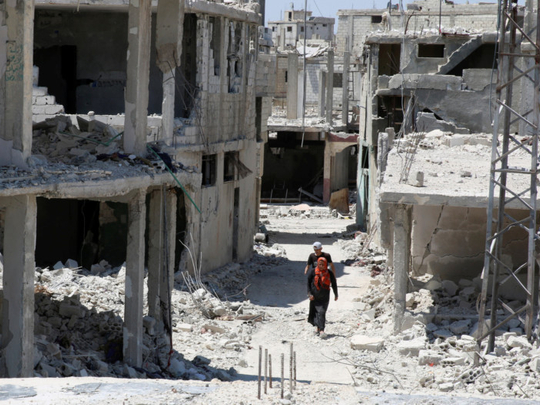
Amman/Beirut: Government air and artillery bombardments hit rebel-held areas of the Syrian city of Dara’a, on the border with Jordan, on Tuesday after a two-day ceasefire expired, witnesses and the Syrian Observatory for Human Rights said.
The Syrian military could not be reached for comment on the renewed action, which took place as US and Russian officials were holding talks on creating a “de-escalation zone” in southwestern Syria that would include Dara’a.
A witness and two insurgents in Dara’a said the army and its allies had resumed air and artillery bombardments in the city and the narrow strip of countryside separating it from the border.
If the army takes rebel-held parts of Dara’a and the few kilometres (miles) between it and the border, it would split the insurgent areas of southeast Syria in half.
At least six raids took place in Gharz in east Dara’a and in the old quarter of the city, where the army resumed efforts to break rebel lines, the rebels said.
The witness said that barrel bombs, artillery shells and rockets were used in the bombardment. Clashes took place near a military base southwest of the city near the border with Jordan, the witness added.
US and Russian officials agreed on a ceasefire, which ended on Monday, during talks in Amman aimed at strengthening goodwill before more detailed negotiations on setting up the “de-escalation zone”, diplomats in Jordan said.
On Saturday the Syrian army said it would suspend combat operations in Dara’a for 48 hours in order to support “reconciliation efforts”.
Rebels in the city and other residents have said this month the army’s bombardment of Dara’a has intensified and insurgents said the government had brought more troops to the city.
Syrian President Bashar Al Assad is backed in the six-year-old war by Russia, Iran and Shiite militias while some of the rebels seeking to oust him are supported by the United States, Turkey and Gulf states.












